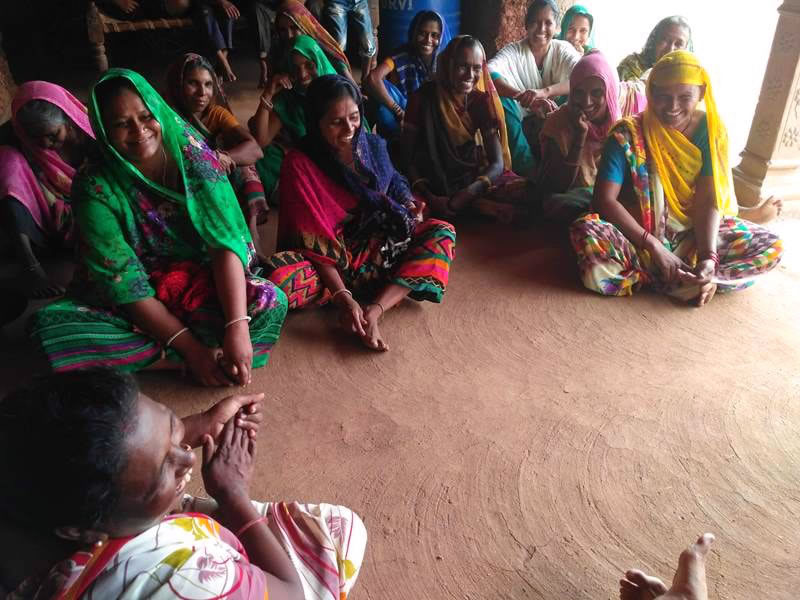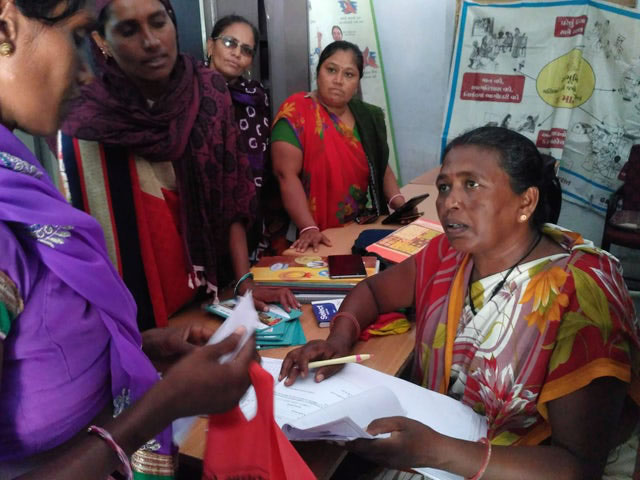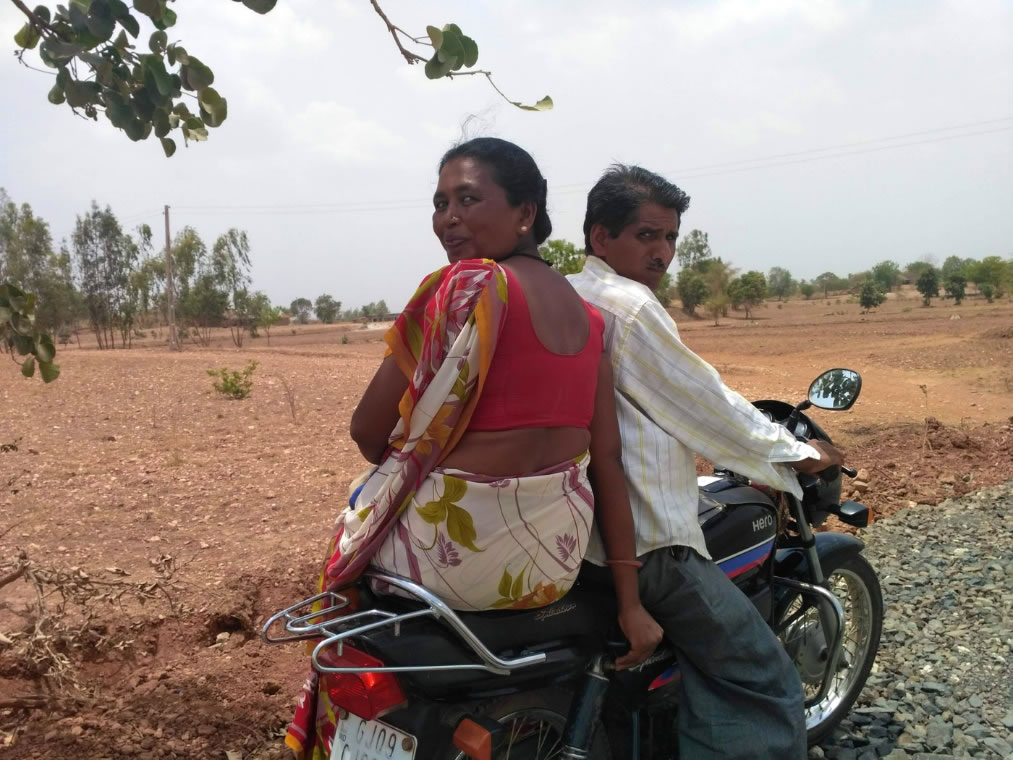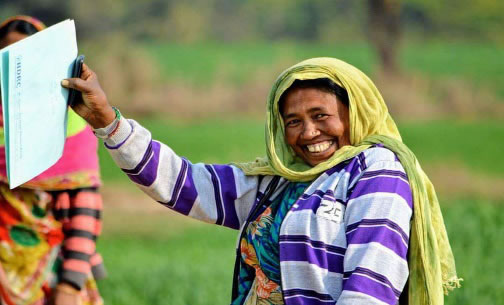Kamlaben’s deep commitment to women’s land rights comes from her own personal struggles. Having lost her elder son to a road accident, she lives with her husband and another son. Their only source of livelihood was from cultivating land belonging to her husband’s family. There was a family dispute over that land and hence, uncertainty over their future.
She had always dreamed of having the security of owning land in her own name!
In large parts of rural India, there is discrimination against women and in most cases, they do not have land or property registered under their names.
This is what Kamlaben and Swa Bhoomi Kendra are changing by educating women and ensuring that they can own and are not cheated of land that they inherit.
Kamlaben turned her personal dream into a dream for all rural women in the area and began helping women get documentation and access to land records through the SBK.
As a paralegal worker, she does field work and education outreach three days a week, and spends the other two doing administrative work, counselling and advocacy. At the Swabhoomi Kendra she assists women who come to her with questions and problems relating to exercising their land rights.

A light moment in Rajgod as Damor hosts a community meeting on women’s land rights. (Chhavi Sachdev)
The process of registering women can get complicated because many are not aware of their rights, nor of the steps they have to take to exercise them. Often, they don’t know essential facts like they need a death certificate and that there is a limited window of 30 days in which it can be made. She accompanies these women to the district court to submit all the necessary documents for completing the application process.
“I remember when I first started going to the courts, I used to be so frightened about dealing with all the clerks and judges, but now I’m fine. Now they know me and they know I mean business; I generally face no resistance and the clerks get my work done,” Kamlaben recalls the difficult journey of confidence in supporting these women.
Kamlaben helps these women with not only the formal legal requirements but also with their personal challenges. These women often face resistance from the men in their families, usually the father-in-law or brother-in-law, because many of them believe the woman will remarry and the land will be transferred to her new husband. Many men don’t even register their daughters on land titles, let alone daughters-in-law.
Despite such resistance from men in their families, Kamlaben with her counselling and campaigning skills has benefited several women from her efforts. In fact, there have been cases where women have been cheated by their family members after they were widowed, and Swa Bhoomi Kendra has been able to restore their rights.
The paralegal workers at Swabhoomi Kendra are trained on land and agricultural issues by the Working Group for Women and Land Ownership (WGWLO). The WGWLO is a state level network of more than 40 NGOs and Community Based Organizations and the Human Development Research Center (HDRC) is a member of this network.
Kamlaben shares about the invaluable experience gained through these trainings, “We were taught to connect and have dialogues with Government Officers without hesitation for accessing our land rights. We were also educated about sustainable agriculture. Sharing this knowledge with my community has helped us to actively learn about how we can improve our lives. This work at the Swabhoomi Kendra has given my life a new purpose!”
Being part of the rights group, Kamalaben also grew in confidence and fulfilled her dream of owning land. She, with financial support from her brother, bought 3.30 bighas (about 1.5 acres) at a cost of around 13 lakhs.
But owning land and helping other women do the same is not an end and there is a great need to spread awareness about economical and sustainable agriculture techniques to help women hold on to the land.
After just a few months of rallies and campaigns, Kamlaben (and her network of women farmers and leaders) have motivated women farmers to start practicing biodiverse, organic farming techniques, and are spreading the message of its importance from one village to the next.
“Earlier, if there was a crop damage, people would tend to go out and buy chemical pesticides and fertilizers. Now, not only are they saving money, but they are preserving their land’s ability to produce,” she explains.
As part of HDRC and WGWLO, she got linked with the noble intentions of the Dream Foundation. This foundation supports small and marginal women farmers. With their support she was able to purchase irrigation equipment’s to begin cultivating on her land. She sees farming on her land as the path to economic prosperity and better social status for her family in the society.
Her tireless work to bridge the inequality in women’s lives has begun to reflect in other aspects of her life too. “SBK volunteer efforts and gender equity training from HDRC have brought change to my family. My husband now helps me with the cooking and the cleaning, and we share responsibilities a little more equally now,” shares Kamlaben with pride!

At the Swa Bhoomi Kendra center, Kamala Damor (right) helps a woman fill out a subsidy form for organic fertilizer. From left to right: an applicant and NGO workers Amti, Jasi and Sumitra.Chhavi Sachdev
A light moment in Rajgod as Damor hosts a community meeting on women’s land rights. (Chhavi Sachdev)

Kamala Damor catches a lift to her meeting in the village of Rajgod. (Chhavi Sachdev)



